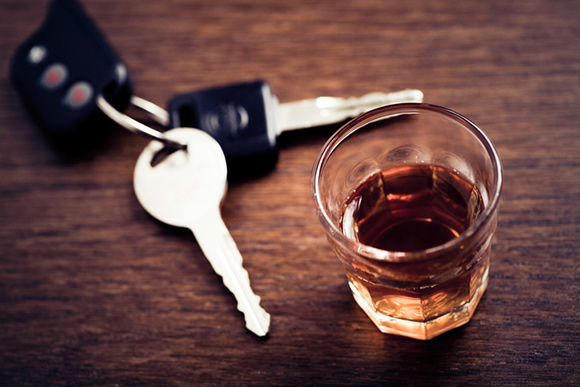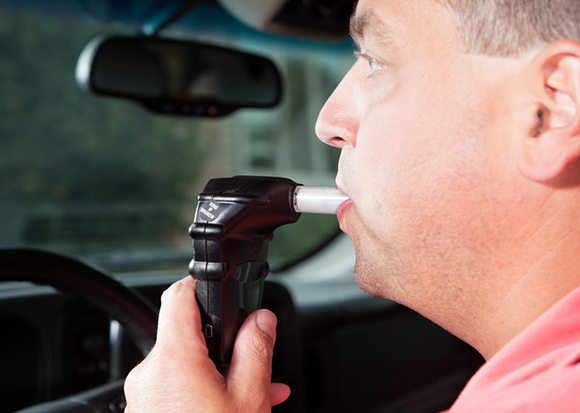
If you’re facing a DUI charge in Las Vegas, you’re probably wondering what types of penalties you might receive if you’re convicted. That depends on the specific events of your case and the judge that sentences you. The court can choose from a range of penalties that might include jail, probation, substance abuse treatment, and more.
Although a DUI in Las Vegas is generally considered a misdemeanor, it’s important to remember that punishment can become more severe with each subsequent conviction. For this reason, if you’re facing a DUI charge, it’s crucial to understand the potential penalties and what options are available to you. Here’s what you need to know about the penalties for DUI in Las Vegas.
Even a first drunk driving offense can result in jail time. When the court decides whether to order you to jail, they consider your criminal history, your remorse, whether there was an accident in the case, your cooperation with law enforcement officers, and the statement of any victim in the case. Your attorney can help you minimize your jail term and explore whether work release might be available.
Almost all DUI offenders receive an order to participate in a DUI school. The school takes approximately 8 hours. You spend the day learning about the dangers of drinking and driving. You will also hear from victims of drunk driving crashes. The goal is to motivate you to avoid drinking and driving in the future.
Most judges order DUI offenders to serve a term of probation. You’ll be ordered not to violate any law of any unit of government. They’ll order you not to possess or drink alcohol. They’ll likely direct you to submit to alcohol testing at the request of any law enforcement or probation officer. If you need to address any specific terms of your probation such as having to possess alcohol for your job, your attorney can help you make this request to the judge.
Every criminal conviction comes with financial penalties. Expect to pay as much as $1,000 for even a first offense. The fines you pay go to running the court system and other functions of government. If you accept a plea offer to a lower offense, your fine is likely going to be less than it would be if you pleaded guilty to the original charge.
The court may order you to participate in substance abuse treatment. This treatment may be anything from outpatient counseling to intensive inpatient treatment. This type of sentence is especially likely if you’re caught with a high blood alcohol content. If the court is inclined to order this kind of treatment, they’ll likely order you to get an alcohol or drug assessment that makes recommendations for appropriate treatment.

SCRAM stands for Secure Continuous Remote Alcohol Monitor. A SCRAM bracelet sits on a person’s ankle and takes an alcohol reading from their sweat at least once an hour. This kind of penalty is more probable if you’re participating in a specialty court like a drug court or if you’re a repeat offender.
An ignition interlock devices attaches to your vehicle. You must submit a breath test to the machine in order to start your car. The court is more likely to order you to use an ignition interlock for a period of time if you’re a repeat offender or if you have a high blood alcohol content at the time of your arrest.
A DUI conviction can result in the suspension of your driver’s license. Both the courts and the Nevada Department of Motor Vehicles can suspend your driver’s license. Although this suspension usually lasts several months, you may be able to receive a restricted license after a period of time. It’s usually worth your while to request a hearing regarding your license suspension, but you must work with your DUI attorney quickly to make this petition after your arrest. Depending on the circumstances of your DUI, you may be able to get a restricted license after showing proof of insurance with a Form SR-22 or by meeting other requirements.
A second drunk driving offense brings additional jail time. You also face a longer license revocation and higher fines. The court is more likely to see you as a problem drinker and order you to obtain lengthy substance abuse intervention treatment.
A third drunk driving offense is a very significant felony. A person that’s convicted for the third time can expect to spend time in a state prison. Their license revocation lasts for multiple years. Because this offense is a felony, a person that’s charged has the right to a trial by jury.
If there’s a child in your vehicle during a drunk driving offense, the court sees this as an aggravating factor, although it’s not a separate charge. However, the court is likely to give you a more severe penalty for DUI. That is, if a typical sentence is ten days in jail, they might sentence you to 30 days in jail. For the purposes of this law, a child is any person under the age of 15.
If your drunk driving causes a serious injury or someone’s death, you face a felony charge even if it’s your first offense. In that case, a conviction brings mandatory prison time. You also face a penalty of several thousand dollars. The court is likely to take the case and your sentence very seriously.
In some cases, a DUI causing death may be classified as a vehicular homicide. This is the case when the DUI results in death, and the offender has at least three prior DUI convictions. Vehicular homicide is punishable by many years in prison. The offender may be eligible for parole after serving several years.
Of course, you only receive penalties for DUI if you’re convicted of DUI. There may be defenses available to you that can result in a finding of not guilty. For example, law enforcement’s testing equipment might not have worked properly. They may have used an unqualified officer to take the tests. If law enforcement violates your constitutional rights, the court may suppress evidence before the case even gets to trial.
A qualified Las Vegas DUI attorney can evaluate your case for viable defenses. They can also give you expert advice about whether it’s best to try your case or accept a plea offer. Your lawyer can help you understand the potential penalties for the charge you’re facing, and any plea offers so you can make the best possible decisions in your case.